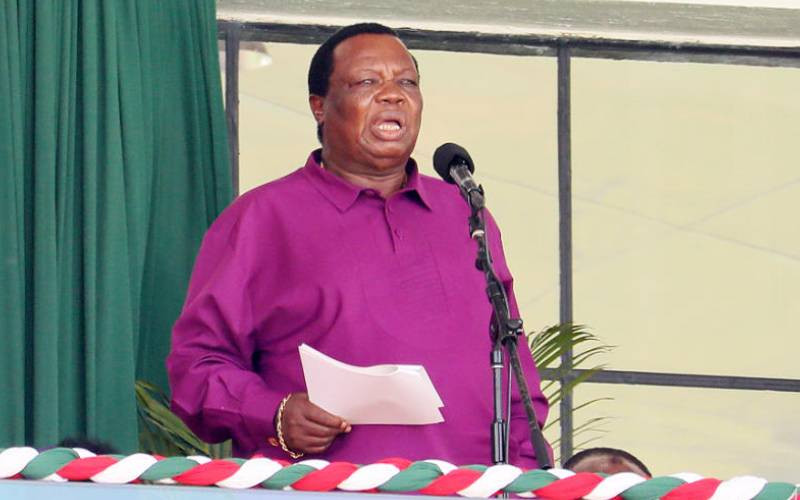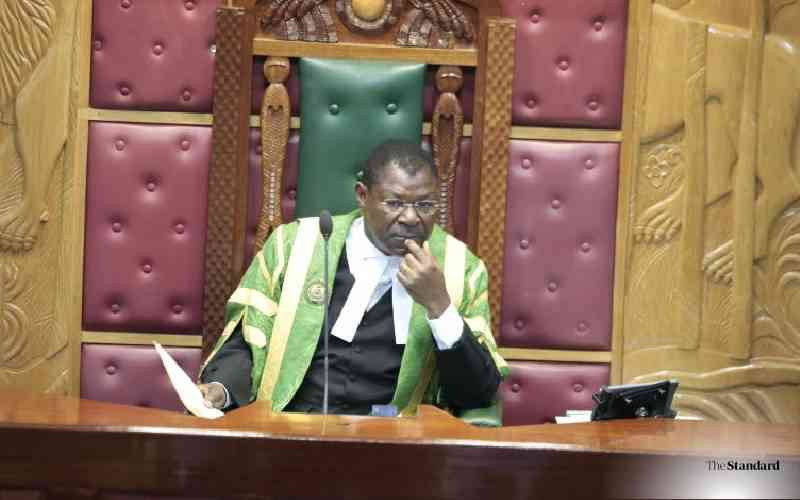Welcome to Kenya, where humour is a powerful coping mechanism, even in difficult times. Despite facing serious challenges, Kenyans use wit in the form of memes, slogans, catchy music, sarcastic tweets and clever slang to reflect on and respond to their reality.
This spirit of humour and creativity was particularly evident during the anti-Finance Bill protests in 2024. What began as online frustration, quickly escalated into peaceful street demonstrations across towns and cities. Protesters turned out in style, carrying smartphones and creative placards that blended sarcasm and sharp political critique.
The courageous Gen Zs held up placards and chanted slogans that reflected their message. Some even printed these powerful messages on T-shirts, attracting hundreds of young participants.
Signs bore statements such as ‘Mheshimiwa unafuliza na my future’, ‘Zakayo Shuka’, ‘Release Young Thug…Take Ruto instead’ and ‘Commander in thief’. Other T-shirts featured slogans like ‘Rong Rende rejects’, ‘Sponsored by Jacob Juma and enemies of thieves and killers’, and ‘The Woke Maji Maji Rebellion’.
Slang emerged as a key form of protest, capturing frustrations over the rising cost of living. Phrases like ‘Mayai ni expensive kuliko kuku’ (‘eggs are more expensive than chicken’) and ‘Maji ni expensive kuliko karai’ (‘water is more expensive than the basin’) became common. Using irony and satire, slang offered a relatable, non-confrontational way to express anger.
A popular slogan, “People Power! If we lose our fear, they lose their power,” was chanted in every Nairobi street and on social media platforms. In a viral TikTok video, a young woman apprehended by police bravely chanted this slogan and thousands joined in, prompting the police to leave her alone. This demonstrated how even humorous slogans sent a deeply meaningful message.
Another well-known slogan was ‘Anguka Nayo’, which originated as a dance challenge. Kenyan arbantone artist Wadagliz released the song ‘Anguka Nayo’ during the anti-Finance Bill protests and it quickly went viral.
The song Anguka Nayo garnered an impressive 11 million views on YouTube in ten months. What began as a fun party song took on a deeper meaning after President William Ruto dismissed his entire Cabinet (though he later reappointed some members). The song, which roughly translates to “fall down with it” in Swahili, transcended party lines and was chanted in both streets and on social media, aiming to call for the removal of corrupt leaders.
During this period, Kenyans also began referring to President William Ruto as ‘Zakayo’ – A Kiswahili name for ‘Zacchaeus’, referring to a biblical figure known for punitive tax. This nickname emerged in response to Ruto’s frequent introduction of new taxes, which many citizens considered harsh and burdensome.
Kenyan artists played a significant role in the anti-Finance Bill protests, amplifying the voices of the people through their talent. Through powerful protest songs, they not only entertained but also informed and united Kenyans.
The musicians skillfully blended storytelling with music to create emotionally charged pieces that portrayed the people’s pain, resilience and determination, offering the world a raw and moving glimpse into what was unfolding on the streets.
Award-winning artiste Bien also featured Kenyan Gengetone sensation Breeder LW in a song called ‘Maandamano’ which has garnered up to 1.5 million views on YouTube in just ten months. Released on July 8, it reflected the movement’s spirit while highlighting the key issues raised by the protests. The hit song not only captured the emotions of the people but also gave a voice to their concerns in a powerful and relatable way.
Another viral song was Kenyan artiste Sabi Wu’s ‘Reject Io Bill.’ It gained prominence after trending on Instagram and has received up to 42,000 views on YouTube in ten months. In the video, Sabi Wu is seen on the ground with fellow protestors as he records his music video.
Donned in a Kenyan flag on his back, he revealed the experiences of most protesters during the riots. By featuring scenes of Gen Zs riding matatus through Nairobi in protest and including a clip of legendary freedom fighter Dedan Kimathi, the artist skilfully conveyed a powerful message about the demonstrations, drawing a connection between past struggles for freedom and the current fight for justice.
Stay informed. Subscribe to our newsletter
Renowned singer Kethan, formerly known as Ethan Muziki, released a hit song during the anti-Finance Bill protests. His song, “Tumechoka” (which gained 11K views on YouTube in ten months), truly reflected the challenges Kenyans were facing.
Kethan not only highlighted important views in his lyric video, but also incorporated music from the ‘Wadidi’ instrument. The lyrics addressed the deep-rooted issue of corruption that has plagued Kenya for generations.
Some lines included, “Tangu tuwape viti, Mmetufanyia nini? Vitu vidogo, dogo. Kutufunga macho. Jasho zetu na bidii, Tuonyesheni risiti. Mstahiki meya, Tumechoka na Hadithi.”
After the Occupy Parliament killings and arrests, Kenyan artiste Smallz Lethal released ‘Offended 2,’ featuring US-based Genge rapper Nonini, Issa Sizzo and spoken word artiste Willie Oeba. Through melody, they sent a message to the world against injustices like tear gassing, arrests and even death.
Nonini begins the song by paying tribute and offering condolences to the families of the fallen protesters.
The YouTube description of the song read:“Music goes to places words cannot get. Poetry is what emotions sound like. Art should be used to document our struggles, pain, win, to inspire, motivate and revolutionise the mindset one stage at a rhyme. Fallen Youths in 2024 who were fighting for better governance and a corruption free Kenya will never be forgotten. Amen.”
The Kalenjin comedy group Ndugu Yangu also joined the anti-Finance Bill protests. Unlike most other artistes who focused on Nairobi, Ndugu Yangu took the fight to President William Ruto’s home turf of Eldoret.
Singing in Kalenjin, the Gen Z artists performed a skit to convey their message. In the skit, a young man on top of a tree holding a placard reading “Finance Bill, Zakayo ni Tano tena” is called down by a group of rowdy youths.
The young people appeared to be protesting as they also held up placards written in both Kalenjin and Kiswahili. Some read, ‘Yon ya koya ooo Zakayo ya ground’ (The situation on the ground is not good, Zakayo). Another stated, ‘Njaa haitambui serikali ni yetu’ (Hunger knows no government). A young woman’s placard, ‘Sasa tusinyeshe’, implied that sanitary towel prices had increased, making it harder for women to access them.
Other revolutionary songs released in the past went viral during the anti-Finance Bill 2024 protests. Veteran artiste Eric Wainaina’s ‘Daima’, released in 2001 on his Sawa Sawa album, became a patriotic song promoting peace and unity during a difficult period in Kenya.
It has remained one of Kenya’s most powerful and enduring patriotic songs.
So, it was no surprise that as Kenyans marched peacefully through the streets of Nairobi and other towns with their fists raised, the words ‘Daima mimi Mkenya, mwananchi mzalendo’ filled the air.
‘Niko Njaa’, from Juliani’s third album Utawala (2010), quickly became popular due to its honest message about the serious problems Kenya has faced for years: tribalism, greed and corruption. The song spoke to a new generation of young, frustrated Kenyans who, like those before them, said “wako njaa hata hawawezi karanga” (they’re so hungry and poor they can’t even afford cooking oil).
‘Tujiangalie’, co-written by Nyashinski and released in 2018, is a powerful political protest song. It encourages Kenyans to reflect deeply on the country’s social, economic and political situation, while cautioning that a new generation may soon take action.
Armed in fashionable outfits, phones in hand, these images will forever be etched in Kenya’s memory.

























